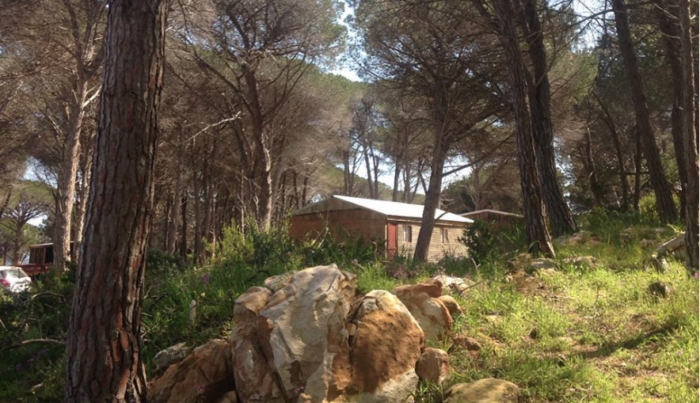A local school is making waves with its move toward sustainable teachings and its literal move into the forest area located on a farm near Kommetjie.
Imhoff Waldorf School has redeveloped the idea of schooling to keep children near nature and encourage exposure to the environment area as well as the knowledge associated with it.
The school runs entirely on solar power and is part of a number of environmental initiatives. While working to create better future generations, the school also focuses on social transformation.
With over 23 years of experience, this unique school has grown like the beautiful fynbos area it finds itself in. It hopes to create mindful adults who can not only be active agents of change in our world but are also aware of their positive role in society.
While Waldorf teaches its students practical lessons, it is also a place of stories, told not only to educate learners but also to expand their perspective.
Diane Awerbuck, award-winning writer, teacher and Chair of the Board of Management at Imhoff Waldorf School in Kommetjie, uses Albert Einstein’s quote, “If you want your children to be intelligent, read them fairy tales. If you want them to be more intelligent, read them more fairy tales,” to explain the kind of school Waldorf is.

“Waldorf schools have a strong mathematical, scientific, musical and language focus (and very good Matric results!) but first, when they are young, we show our children the old stories so that they learn to make new connections. They will have the rest of their lives to be task-oriented, competitive, crowd-pleasing. When they are young we need to help them develop a strong sense of self, and the stories of our culture are the basis of everything else that follows. We have to get that right if we want individuals with moral imagination – adults who can empathise with the suffering of others, but still behave in the best interests of the majority. Our children should go to schools where they are given stories, and where they can make their own stories, so that they can see the pattern of their lives, be active agents of change in the world, and find their places in it,” says Awerbuck.

Part of the schools ethos is caring about children as human beings and educating them to do the same. Small classes ensure individual attention for each student, where children are actively encouraged to relate to their classmates, their school and community.
A whole-person education is given to each student, allowing pupils to use their hands, hearts and heads. A rich curriculum ensures children are exposed to a variety of languages, mathematics and sciences.
The results produces from this education are highly competitive when compared to others schools but collaboration and community-mindfulness are actively taught too.

Pupils at Waldorf are also encouraged to use critical and free thinking, enabling them to be more prepared for problem-solving. Art however is not forgotten while in the learning process.
“We understand that art, music and story are the foundations of human culture, and we think they ought to be foregrounded in good education,” says the school on their website.
One of the biggest focuses in the curriculum is sustainability.
“We are an eco-school, located in a forest – the last bit of green space near The Table Mountain National Park. The valley is rapidly urbanising, and we know that preserving this ‘green lung’ for all the surrounding communities is a necessity, not a luxury,” says Awerbuck.

The school is completely dedicated to their sustainable cause with their own borehole, active recycling practices and environmental best practice in their design, construction and daily practice.
If you’re looking for a place to educate your young one and you care about a sustainable future, Imhoff Waldorf School is the place for you.
“Receive the children in reverence, educate them in love, and send them forth in freedom,” Rudolf Steiner, Founder of Waldorf schools once said.
Pictures: Facebook/Imhoff Waldorf School

